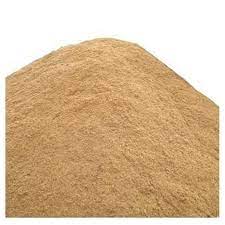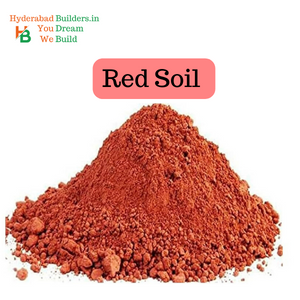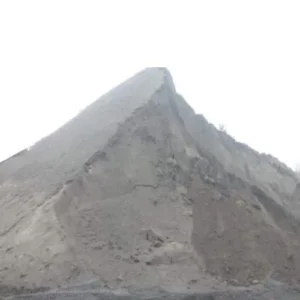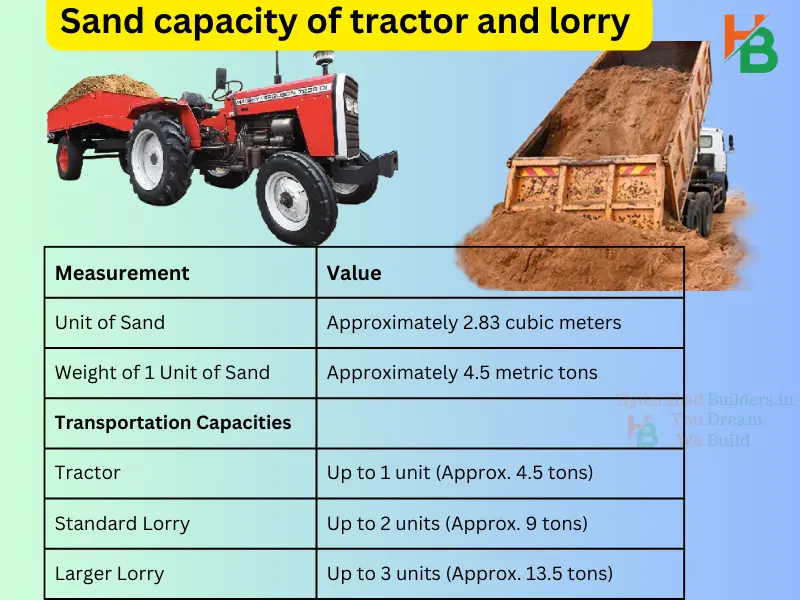Category: sand
Book river sand, robo sand, M sand and red soil for plants and for your construction needs you can book sand per ton or 1 lorry sand at best price
Showing all 5 results
-
Sale!

Non refined sand
Original price was: ₹1,900.00.₹1,600.00Current price is: ₹1,600.00. Per Ton -
Sale!

Red soil (Erra matti)
all tax are inclusive Original price was: ₹975.00.₹900.00Current price is: ₹900.00. Per Ton -
Sale!

River Sand
Original price was: ₹1,700.00.₹1,600.00Current price is: ₹1,600.00. perton -
Sale!

Robo Sand dust
inclusive of all taxes Original price was: ₹800.00.₹750.00Current price is: ₹750.00. perTon -
Sale!

Robo Sand Price In Hyderabad
inclusive of all taxes Original price was: ₹800.00.₹750.00Current price is: ₹750.00. per ton
Sand price in Hyderabad, a ubiquitous natural resource, transcends its seemingly mundane appearance to become a cornerstone in the grand tapestry of construction. In this comprehensive exploration, we will navigate the intricate landscape of sand, unraveling its origins, myriad applications, and the diverse types that grace the construction industry.
What is Sand?
sand” typically refers to granular material composed of finely divided rock and mineral particles. It is one of the main ingredients used in construction activities such as making concrete, mortar, plaster, and asphalt, as well as in various landscaping and recreational projects.
Sand in Construction
Sand, a main construction material, emerges as a silent hero in the world of construction, contributing to the very aspect of structural integrity and aesthetic finesse. Let’s explore on a journey to explore the multi roles of sand in various phases of construction. Here are the some of the applications of sand
1. Foundations and Concrete:
At the base of every construction project lies the curial role of sand in concrete. Its granular presence is the bedrock of strength, stability, and cohesion in concrete structures. Foundations, slabs, and beams all owe their robustness to the supportive embrace of sand, making it an indispensable component in creating enduring structures.
2. Mortar Production:
In the intricate artistry of construction, mortar is the silent architect that binds bricks and stones into harmonious structures. Sand, with its fine details, assumes a fundamental role in the production of mortar. It acts as the cohesive force, ensuring that walls and structures stand tall with structural integrity and resilience.
3. Asphalt Mixes:
As we navigate the roads that connect our world, we encounter another manifestation of sand’s versatility. Sand seamlessly integrates into asphalt mixes, contributing to the durability and performance of road surfaces. Its presence is a testimony to its ability to enhance not only structural strength but also the functionality of construction materials.
4. Brick and Block Manufacturing:
sand is used in manufacturing process of bricks and concrete and aac blocks, sand takes center stage as a key protagonist. Its presence is not merely incidental; it is intentional, ensuring the cohesiveness of these essential building blocks. Sand weaves the very fabric of walls and structures, playing a pivotal role in shaping the physical form of our constructed environment.
5. Landscaping and Filling:
Beyond the pragmatic roles in construction, sand embraces aesthetic and functional duties. It transforms into an artistic medium, gracing landscaping projects with its fine texture. A canvas for creativity, sand invites architects and designers to sculpt outdoor spaces. Simultaneously, it stands as a reliable filling material in diverse construction activities, ensuring stability and functionality.
Types of Sand in construction
1. River Sand:
Characteristics: Extracted from the serene embrace of riverbeds, river sand showcases well-rounded grains, a testament to its natural journey shaped by water currents.
Considerations: Despite being a preferred choice for construction, the extraction of river sand raises environmental concerns. Balancing its utility with environmental impacts becomes a pivotal consideration.
2. M Sand (Manufactured Sand):
Process: Crafted through the art of crushing rocks, M sand emerges as an environmentally conscious alternative to river sand. Its manufacturing process aligns with sustainability goals, offering a responsible option for construction.
Uniformity: M sand takes pride in its uniform particle size, an attribute that enhances its popularity in construction. Consistency becomes a hallmark, ensuring predictability in its application.
3. Robo Sand:
Production: Fashioned through the precision of specialized equipment, Robo sand steps onto the construction stage, promising not just uniformity but also a distinct quality in grain size.
Trend: Within the dynamic landscape of construction materials, Robo sand is gaining traction. Its ascent in popularity is attributed to its reliability and standardization, positioning it as a credible alternative.
Engineering Applications
In the vast realm of engineering, sand becomes a versatile player, donning various hats to fortify structures and support foundational elements.
Geotechnical Engineering:
Role: An instrumental component in geotechnical engineering, sand becomes the stabilizing force in soil. Its presence reinforces terrains, offering stability and mitigating potential risks associated with soil movement.
Civil Engineering:
Backbone: Sand forms the backbone of civil engineering projects, serving as the bedrock for road construction, the building of bridges, and the realization of other vital infrastructure endeavors. Its role extends beyond support, becoming an integral part of the structures that define our landscapes.
Foundational Engineering:
Key Ingredient: In foundational engineering, sand stands as the key ingredient in the establishment of robust and enduring foundations. Its ability to provide a stable base becomes foundational to the very essence of structural strength.
Which Sand is better for construction river sand or M sand
| Aspect | River Sand | M Sand |
|---|---|---|
| Source | Naturally occurring from riverbeds like kaleshwaram sand | Manufactured from hard rocks (granite, basalt) |
| Quality | Variable; may contain impurities need to refine sometimes | More consistent; free from organic matter |
| Grain Shape and Size | river sand is Rounded grains | M sand is Angular and cubical grains |
| Availability | Subject to seasonal variations, inconsistent | Production can be controlled, reliable supply |
| Environmental Impact | Overexploitation, ecosystem disruption | Reduces dependence on riverbeds, less environmental impact |
| Cost | Varies depending on location and availability | Initially higher due to setup, competitive in the long run |
| Usage | Widely used in construction | Increasing popularity due to quality and availability |
Sand Prices in Hyderabad
| Types of Sand | Price per Ton (₹) |
|---|---|
| River Sand | ₹ 1400- 2500 per ton |
| Plastering Sand | ₹ 1750 per ton |
| Red Soil | ₹ 900 per ton |
| Robo Sand | ₹ 700 per ton |
| Robo Sand Dust | ₹ 750 per ton |
100 cubic feet of sand weight in kg
- 1 unit of sand is equal to 100 cubic feet (cft).
- The density of dry sand is 1600-1700 kg/m³
- 1 ton equals 1000 kilograms (kg).
- 1 cubic meter (m³) equals 35.32 cubic feet (cft).
Using these conversions:
- 1 unit of sand in cubic meters (m³) = 100 cft / 35.32 = 2.83 m³.
- 1 ton of sand in cubic meters (m³) = 1000 kg / 1600 kg/m³ = 0.625 m³.
- Tons of sand in 1 unit = 2.83 m³ / 0.625 m³ = 4.528 tons (approximately 4.5 tons).
- 1 unit of sand = 4.5 tons 0r 4500kgs
- 100 cft of sand= 4.5 tons
- 1 tractor you get 4.5tons of sand as volume of the tractor is 2.83 m³.
Sand Volume, Weight, and Price Range
| Volume (CFT) | Weight (Tons) | Weight (Kilograms) (kg) | Total Price Range (INR) |
|---|---|---|---|
| 1 CFT | 0.045 Tons | 45 kgs | ₹63 to ₹90 |
| 25 CFT | 1.125 Tons | 1125 kgs | ₹1575 to ₹2250 |
| 50 CFT | 2.25 Tons | 2250 kgs | ₹3150 to ₹4500 |
| 75 CFT | 3.375 Tons | 3375 kgs | ₹4725 to ₹6750 |
| 80 CFT | 3.6 Tons | 3600 kgs | ₹5040 to ₹7200 |
| 90 CFT | 4.05 Tons | 4050 kgs | ₹5670 to ₹8100 |
| 100 CFT | 4.5 Tons | 4500 kgs | ₹6300 to ₹9000 |
| 120 CFT | 5.4 Tons | 5400 kgs | ₹7560 to ₹10800 |
How Much Sand Requirement for construction
| Area (sqft) | Area (sq yd) | Sand Required (cft) | Sand Required (units) | Sand Required (tons) |
|---|---|---|---|---|
| 100 sqft | 11.11 | 180 cft | 2 units | 8 tons |
| 200 sqft | 22.22 | 360 cft | 4 units | 16 tons |
| 300 sqft | 33.33 | 540 cft | 5 units | 24 tons |
| 400 sqft | 44.44 | 720 cft | 7 units | 32 tons |
| 500 sqft | 55.56 | 900 cft | 9 units | 41 tons |
| 600 sqft | 66.67 | 1080 cft | 11 units | 49 tons |
| 1000 sqft | 111.11 | 1800 cft | 18 units | 81 tons |
| 1200 sqft | 133.33 | 2160 cft | 22 units | 97 tons |
| 1500 sqft | 166.67 | 2700 cft | 27 units | 122 tons |
| 2000 sqft | 222.22 | 3600cft | 36units | 162 tons |
How much is 1 sand truck price
Factors Influencing Pricing
1. Type of Sand:
The very essence of the sand, whether it emerges from the natural embrace of riverbeds or is meticulously manufactured, sets the tone for its pricing. In Hyderabad, the choice between river sand and manufactured alternatives like M sand or Robo sand introduces different cost structures, reflecting the intricacies of production and sourcing.
2. Quality Considerations:
Quality stands as a paramount determinant in the pricing equation. Sand that adheres to stringent quality standards, showcasing uniform grain sizes and minimal impurities, often commands a premium. The assurance of quality becomes a significant factor for construction projects where durability and reliability are non-negotiable.
3. Market Demand:
The pulse of the market, characterized by the ebb and flow of construction activities, profoundly influences sand prices. High demand during peak construction seasons can lead to price surges, while lulls in construction activities may result in more competitive pricing. Understanding the market’s heartbeat is crucial for navigating the pricing landscape.
4. Environmental Regulations:
In the environmentally conscious era, particularly in Hyderabad, the extraction of river sand faces scrutiny due to stringent environmental regulations. Compliance with these regulations incurs additional costs, impacting the overall pricing of river sand. This factor contributes to the discernible price difference between river sand and its manufactured counterparts.
Density of Sand
Critical Parameter: Density is a critical factor in determining the volume-to-weight ratio of construction materials. The density of sand typically ranges from 1,600-1700 kg/m³, influencing the overall strength and durability of structures.
Which sand is not good for construction?
- Weakness in Structure: Sea sand, in particular, lacks high compressive and tensile strength, making it unsuitable for providing the necessary support and stability required in construction projects.
- Salt Content: Sea sand contains salt, which can corrode steel reinforcement and plaster over time. This corrosion weakens the structural integrity of the building and can lead to costly repairs or even structural failure.
- Particle Size: Desert sand is typically too fine and rounded, which affects its ability to bind together effectively in construction materials like concrete and mortar. This can result in reduced strength and stability of the structure.
- Environmental Concerns: Excessive mining of river sand, another common source, has been restricted due to environmental concerns. However, resorting to sea or desert sand as an alternative exacerbates environmental issues and should be avoided.
In contrast, river sand and manufactured sand (M sand) are preferred choices for construction purposes due to their better quality, consistency, and sustainability. Prioritizing river sand or M sand helps maintain the integrity of structures while minimizing environmental damage.
Where to Find Local Sand Dealers in Hyderabad
Embarking on a construction journey requires reliable partners. In Hyderabad, discovering trustworthy sand dealers involves a blend of local outreach and online exploration. Connect with local suppliers, explore construction material stores, or leverage online platforms. Vet the reputation of the dealer, inquire about the source and quality of the sand, and forge alliances with those who share your commitment to quality and reliability. you can also contact us for pure sand

 Book river sand, robo sand, M sand and red soil for plants and for your
Book river sand, robo sand, M sand and red soil for plants and for your 



